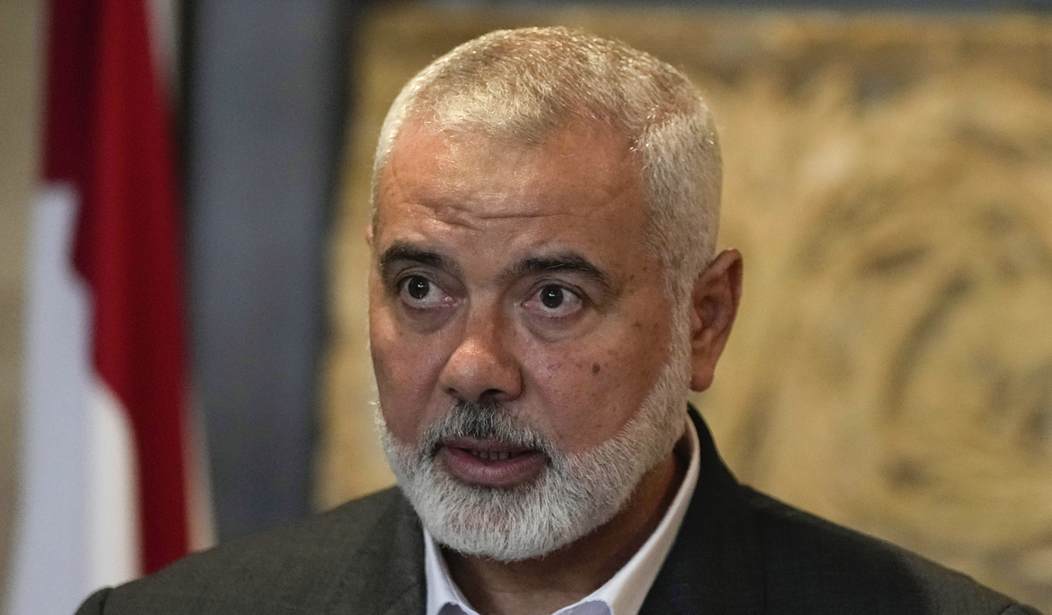For the last week, U.S. and Arab diplomats have urged restraint by Iran on any retaliatory strike against Israel for the assassination of Hamas leader Ismail Haniyeh in a house in the middle of Tehran. The diplomats are trying to head off a wider war that would ensue if Iran miscalculates and incites Israel to go to war against the Islamic Republic.
“Israel is now in a multifront war against the Iranian axis of evil,” Israeli Prime Minister Benjamin Netanyahu said on Sunday. “We are ready for any scenario—either defensive or offensive. I repeat to our enemies: We will respond and exact a heavy price for any act of aggression against us, from any arena.”
This is essentially where we were in April following Israel's strike on the Iranian embassy in Damascus that killed several high-ranking officers of the Revolutionary Guards. Iran responded with the most massive strike against Israeli soil in its history, firing off more than 300 missiles and drones. Fortunately, most of them were shot down thanks to a unique air defense coalition involving Israel, the U.S., Jordan, Saudi Arabia, and other Arab nations.
Iran, perhaps embarrassed by the security lapse that allowed a bomb to sit undisturbed in a Tehran guest house for several months until detonating on July 31 when Haniyeh was attending the inauguration of Iran's new president, Masoud Pezeshkian, now says that a missile killed Haneyeh outside the guest house.
As is customary, Israel has had no comment at all on the assassination of Haniyeh. That hasn't stopped Iranian authorities from arresting dozens of people in connection with the bombing.
“Whether Israel has used infiltratory elements, human agents and spies, or it has committed this crime directly are under investigation,” said Sadeq Rahimi, the deputy chief of Iran’s judiciary.
That investigation has already cast a wide net.
Iran has arrested more than two dozen people, including senior intelligence officers, military officials and staff workers at a military-run guesthouse in Tehran, in response to a huge and humiliating security breach that enabled the assassination of a top leader of Hamas, according to two Iranians familiar with the investigation.
“The perception that Iran can neither protect its homeland nor its key allies could be fatal for the Iranian regime, because it basically signals to its foes that if they can’t topple the Islamic Republic, they can decapitate it,” said Ali Vaez, the Iran director for the International Crisis Group.
The arrests came after the IRGC announced in a statement that “the scope and details of this incident are under investigation and will be announced in due course.”
The assassination of Haniyeh has precipitated a crisis in Iranian leadership, perhaps the worst crisis since the revolution.
The deadly blast, which also killed Mr. Haniyeh’s Palestinian bodyguard, wasn’t only an earth-shattering collapse of intelligence and security; nor only a failure to protect a key ally; nor evidence of the inability to curb the infiltration of Mossad; nor a humiliating reputational blow. It was all of those, and more.
Perhaps most important, it delivered a jarring realization that if Israel could target such an important guest, on a day when the capital was under heightened security, and carry out the attack at a highly secure compound equipped with bulletproof windows, air defense and radar, then no one was really safe.
“This security breach requires different policies and strategies; it may be arresting spies if there was infiltration, or retaliation if the operation was conducted from outside the borders, or a combination of both,” Sasan Karimi, a political analyst in Tehran, said in a telephone interview.
The bottom line is that the Iranian leadership, including the Revolutionary Guards and the clergy, don't trust each other. The mole hunt is reportedly sweeping up high-ranking members of the government and the Guards. Once everyone starts pointing fingers at everyone else, the government becomes unstable.
Collapse is not very likely -- but at the very least, it makes retaliating against Israel more difficult.










